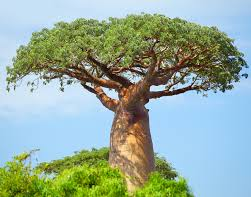Securing the History of Self: What of Reliable History?
- By kwende ukaidi
- •
- 25 Oct, 2024
- •
Celebrating the Great Afrikan History Continuum

Is Afrikan history reliable its connectedness and telling to its Afrikan people? Under circumstances of normality where Afrikan souls are self-determined in their historical information gatherings and articulations, reliability is surely a natural mainstay. For this soul people who have held the functional and core spiritual-cultural fabric of rightful order reliable articulation of their self-determined experiences naturally and necessarily serviced upright and continual constructive ascension. To look at this another way, if Afrikan souls were unreliable with the substance of their own history, then the reliability in the application of self-determined activity could suffer acutely. The greatest and most enduring civilisations ever to exist would surely not have come to fruition were such a hampering condition been prevalent. Rather, than being some sort of detached or isolated phenomenon attracting outside observational study, Afrikan history to its people is deeply interlaced, interwoven and interconnected. Thus, to speak of a reliable Afrikan history in relation to Afrikan people is to speak of the reliability Afrikan souls have with themselves.
According to a contemporary mainstream source, the term reliability in connection to history attracts the following detail:
“If a source is reliable, then what it tells us is likely to be accurate and very close to the truth of what actually happened”.
Another mainstream source offers the following:
“Primary sources are considered the most reliable source of history due to their direct connection to the events and people being studied. These sources provide firsthand accounts and original documents from the time period under investigation”.
Additionally, a third mainstream source posits of this detail:
“Reliable means the conclusions that we can draw from that historical event apply in other situations. As such, if the knowledge is reliable we will be able to generalise it to other historical events”.
Unfortunately, the original question posited may hold a level of unnatural ‘validity’ in a state of interruption and disruption to Afrikan life. Others that mean the Afrikan ill may take it upon themselves to intentionally render an ‘Afrikan history’ that is unreliable to Afrikan people with the intended consequence that Afrikan souls are unreliable to themselves. Here, the ills of miseducation and misinformation can play a dastardly role.
Amidst the imposition of destructive chaos and disorder, Afrikan souls may be led to ‘forget’ that they are the primary source of the history that they make. For, Afrikan history is Afrikan self-determined experience. As such, the onus of responsibility for the resource of Afrikan history in service of Afrikan ascension and the telling of Afrikan history for the same - as delivered to this soul people - surely and principally lies with themselves. Of course, the circumstance of disruption may dictate that Afrikan souls are compelled to make use of efforts of others on the subject of history they would not naturally and normally have to do in the interim. However, discernment to avoid the falsities and damage of outright anti-Afrikan propaganda is key.
Despite the challenges, this primary people of creation can – and surely must – recover knowingness of themselves and re-engender their norm of reliability in relation to their history continuum in the best ways possible. After all, civilisation is not of happenstance.
Afrikan Historia Msimu is an observance period for the duration of the tenth month of the year (so-called October). This is a special time for learning, growth and development of the Afrikan experience in the world. It is a time of spiritual and cultural elevation as Afrikan history is restored to fabric of life in the living knowingness of the then, the now and tomorrow. Great ones of the Afrikan journey are highlighted and the symbols relevant to the time invigorate life in the imperative onward flow of global Afrikan ascendancy. This wonderful observance is a part of the cultural calendar of the Universal Royal Afrikan Nation (URAN).
The Universal Royal Afrikan Nation (URAN) is an Afrikan-centred spiritual and cultural mission for ascendancy that embodies living spiritually and culturally rooted life. To find out more about URAN and its spiritual-cultural mission for liberty and nationhood click here. The exquisite URAN pendant can be obtained online by clicking here.
In his capacity as an Afrikan-centred spiritual cultural practitioner this author is available for further learning in this regard and also for the carrying out of ceremonies such as naming and name reclamation. For details please click here.
Afrikan World Studies programmes are important forms of study in understanding the Afrikan experience. There are a range of subjects covered on these programmes including History, Creative Production, Psychology and Religion. To find out more about these learning programmes please click here. For the video promo for these learning programmes click here.
At nominal cost, also consider acquisition of an a4 laminate poster of articulations by this author when visiting the Yemanja-O establishment to enrol, consult, learn, gather or otherwise.
Also, visit www.u-ran.org for links to Afrikan liberation Love radio programme on Universal Royal Afrikan Radio online.
